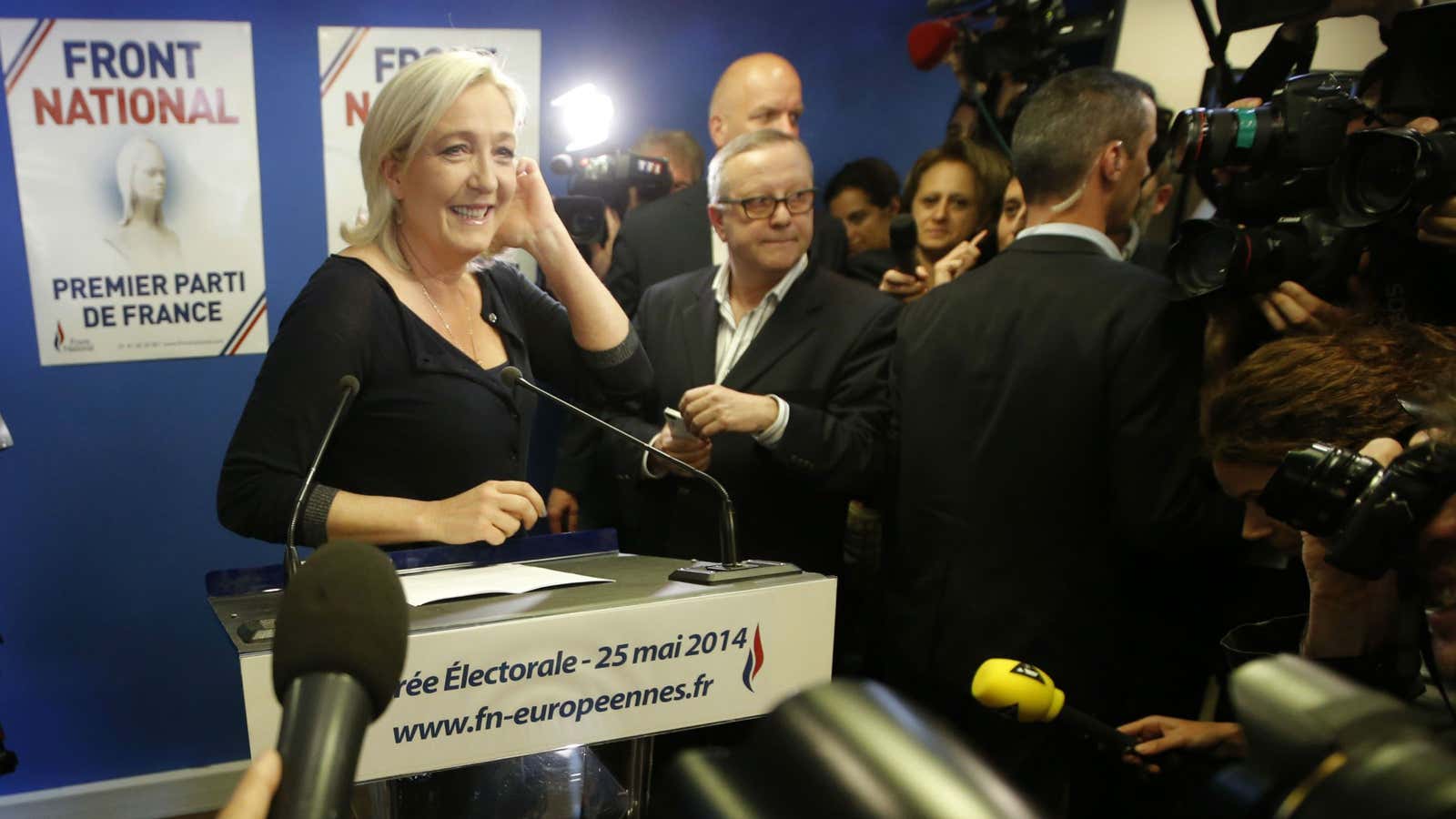Europe is in a mess. Its economies are failing to deliver higher living standards for most people—and many have lost faith in politicians’ ability to deliver a brighter future. Only 43% even bothered to vote in this weekend’s European elections and those that did deserted mainstream parties for the extremes. It’s a wake-up call that Europe desperately needs to change.
After an unnecessarily long and deep recession, Europe’s recovery is the flimsiest on record: feeble in the euro zone, a return to housing bubble and bust in Britain. Real wages in Britain have fallen by nearly a tenth since the crisis, while the average German earns fractionally less than 15 years ago. Living standards in crisis-hit southern Europe have fallen off a cliff. Twenty-six million Europeans are out of work—including 15 million young people neither in employment nor education. A lost generation is in the making.
Many countries have zombie banks and crushing debts. Most have feeble productivity growth and weak investment. All are aging fast, and without immigration, workforces are set to shrink. Combine depressed demand, inadequate investment, poor productivity and demographic drag, and Europe seems set for stagnation and decline unless it radically reforms. Depressingly, most Europeans think younger generations will have a worse life than they do.
The present economic pain and fear of the future are poisoning politics too. Many people no longer trust mainstream politicians, EU technocrats and elites in general, who seem self-serving, captured by vested interests, and incapable of solving Europe’s problems, let alone setting out a compelling vision of a brighter future. Some are even losing faith in democracy itself.
Social tensions within countries are multiplying, as are political frictions between them. Understandable anger at the injustice of bailouts for rich bankers and budget cuts for poor schoolchildren overlaps with a despicable scapegoating of outsiders, notably immigrants. Scots will vote on whether to split from Britain in September, Catalans from Spain in November. Bombs go off when Angela Merkel visits Athens.
The project that binds Europeans together—the European Union—has never been more unpopular; Britain may even vote to leave. The EU’s crowning achievement, the euro, is increasingly seen as a sadomasochistic straitjacket. As a result, most Europeans now associate the EU with austerity, recession and German domination, with constraints on what they can do, rather than on how they can all achieve more together.
This anti-EU, anti-foreigner, anti-establishment mood is fertile ground for extremists and charlatans, who have done extremely well in the European elections. Xenophobic reactionaries came top in Britain, France and Denmark. Outright neo-Nazis came second in Hungary, third in Greece and grabbed a seat even in Germany. The far left came first in Greece. An anti-establishment movement headed by a comedian came second in Italy. Ultimately, Europe’s open societies–post-war Europe’s most amazing achievement—are at risk. So as well as radical economic reforms, Europe’s politics needs to change too.
Europe needs bold leaders, political entrepreneurs, and a grassroots movement for change. Perhaps Italy’s new 39-year-old prime minister, Matteo Renzi is the man to get the ball rolling. Bucking the anti-incumbent trend, he won a whopping 41% of the vote in Italy, twice as much as his nearest rival. He has pledged to shake up its hidebound economy and its corrupt politics. He needs to capitalize on his landslide victory to press on with domestic reform and demand changes to how the euro zone is run.
Instead of a euro zone shaped by Germany’s narrow interests as a creditor, we need a euro zone that works for all its citizens. Zombie banks should be restructured, excessive debts (both private and public) written down. Increased investment is essential, along with reforms to boost productivity. The economically damaging and politically poisonous fiscal straitjacket imposed by Berlin needs loosening. To create lasting shared prosperity, Europe needs to break the grip that vested interests have over its economies and make them more adaptable, dynamic and decent through reforms that add up.
The EU also needs to become more open, accountable, and democratic. Europeans need a greater say over the future direction of the EU—and the right to change course. And instead of its closed, clubby, class-based politics from a bygone industrial age, Europe needs a more open politics for the internet age. Above all, Europe needs hope, a politics of genuine optimism, a prospectus for a better future. It needs a European Spring: economic and political renewal.
